The “International Symposium on Turkish-Armenian Relations and the Great Powers” organized by Erzurum Atatürk University on 2-4 May began at the Atatürk University Culture Center. In the opening sitting of the symposium, Assoc. Prof. Erol Kürkçüoğlu, Director of the Armenian-Turkish Relations Research Center at Ataturk University, Director General of the State Archives Assoc. Prof. Uğur Ünal, Atatürk University Rector Prof. Dr. Hikmet Koçak, Ambassador Reha Keskintepe, the Director of Research and Security Affairs at the Turkish Foreign Ministry, Mayor of Erzurum Av. Ahmet Küçükler and Governor of Erzurum Sebahattin Öztürk gave a speech. Professor at Bilkent University and Professor invited by the Paris Dauphine University Prof. Dr. Orhan Güvenen delivered the opening speech.
In the first session in which Prof. Dr. Ibrahim Ethem Atnur was the moderator, Prof. Dr. Ümit Özdağ presented a paper entitled “The Measures Turkey Must Take against the Armenian Psychological Operation”. In his presentation, Prof. Özdağ has stated that Turkey must conduct a war of information before 2015 and within this framework, has emphasized that organizations such as Center for Eurasian Studies, which is directed by Retired Ambassador Ömer Engin Lütem, should be supported. Özdağ has also said that the psychological pressure created by 2015 must be eliminated and a strategy of 3 stages must be pursued during the period from now on. According to this, measures such as Turkey, by providing scholarships, should invite foreign academicians to work particularly in the Turkish archives, should prepare outreach programs for states to raise specialists in the legal field and promoting the Armenians in Turkey to play a more active role in the process have been provided. The second speaker Prof. Dr. İlyas Doğan gave a presentation entitled “An Assessment Regarding the Property Claims of Armenians in Light of the ECHR Resolutions”. Concerning the protection of private property, Prof. Doğan has presented a detailed evaluation of the decisions adopted in the lawsuits filed in the ECHR especially by the Germans against countries like Poland. In his presentation entitled “The Moment of Truth of Dashnak Armenians: The VIII’th Erzurum Dashnak Congress”, President of the Armenian Studies Department at the Turkish Historical Society Prof. Dr. Kemal Çiçek, after addressing the researches on whether representatives of the Committee of Union and Progress attended the congress organized by the Dashnaks, said that he reached the conclusion that there are two congresses for this purpose and based on the detailed descriptions of Armenian sources, that members of this Party were present in the congresses and some negotiations were held with the Dashnaks, but no result was obtained from them. In Prof. Dr. Yusuf Sarınay’s
presentation entitled “An Assessment of the Judgments Made Concerning the Relocation”, after emphasizing that the relocation judgments must be separated from the judgments made in Istanbul, which was under occupation in 1919-1920, he has stated that relocation judgments took place in Courts Martial and that 697 government officials and 975 civilians were tried during these judgments for their implementations during the Relocation and that most of them were condemned to various punishments including execution. As the last speaker during this session, Director of Center for Eurasian Studies Retired Ambassador Ömer Engin Lütem, in his presentation entitled “Recent Developments in Turkey-Armenia Relations”, after explaining in detail the requests of the Turks and Armenians from each other, has evaluated the development of the process of Turkish-Armenian Protocols. In his evaluation, Lütem has emphasized that any compensation to be given concerning the Karabakh issue could have a negative influence on the resolution of the Karabakh conflict between Azerbaijan and Armenia. He has also stated that the Protocols are not beneficial for Turkey in its current form, but that its rejection will not create positive results for Turkish-Armenian relations and Turkey’s international prestige. Furthermore, Lütem has expressed that the initiatives of the Diaspora Armenians before 2015 have increased and that currently activities such as an international conference, establishment of a “Genocide Museum” in the US capital city Washington and the story of “the Forty Days of Musa Dagh” being shot by Hollywood producers are continuing.
In the second session chaired by Prof. Dr. Hikmet Öksüz, five presentations were made. The first of these is the presentation of Prof. Dr. Yavuz Aslan entiteld “The Armenian Question within the Scope of Turkish-Soviet Relations during the National Struggle Period”. Prof. Dr. Nurşen Mazıcı has presented a declaration entitled “What Turkey Must Do at the Last Stage of the Armenian Genocide Allegations Reached”. The third presentation is Prof. Dr. Cihat Göktepe’s “Psychology of Victimhood in Turkish-Armenian Relations and its Influence on Turkish Foreign Policy”. Prof. Dr. Musa Qasımlı has displayed his views in his presentation entitled “Quest Efforts of Tsarist Russia for Warm Waters and Armenians”. Last of all, Professor at Uludağ University Barış Özdal has made a presentation entitled “An analysis of Turkey-Armenia Relations in the Context of European Union Progress Reports”.
The third session of the day has been chaired by Prof. Dr. Yavuz Aslan. Firstly during the session, Prof. Dr. Ömer Turan has given a presentation entitled “Armenian Revolts in Anatolia in the 1890’s From the Eyes of Ambassador A.W. Terrell”. In his presentation, Prof. Turan has addressed in detail the reports written by Ambassador Terrell on behalf of the Turks in Anatolia and against the Armenians. Secondly, Prof. Dr. Cevat Başaran has provided a presentation entitled “A Perspective on Mass Grave Excavations in Eastern Anatolia”. Prof. Başaran’s presentation carries the attribute of a noteworthy visual document. The findings during the excavations in the region carried out for more than 30 years and the atrocity directed towards the Muslims by the Armenians have been presented by both visual findings and documents. In the presentation entitled “Eyes-Wide Shut: Support for Armenian Terrorism in the Armenian-American Press, 1973-1988”, Doctoral candidate of Florida State University Christopher Gunn has reviewed the reasons for Armenian terrorism coming to an end especially following the Orly attack in France. Last of all, Associate Professor Qafar Çakmaklı, in his presentation entitled “The Results of the Armenian Policy of an Armenia without Turks: Massacres, Deportations and Migrations”, has emphasized the fascist ideology behind the massacre, deportation and forced migration directed by the Armenians towards the Muslim population.
The fourth session of the day was chaired by Dr. Haluk Selvi. Prof. Dr. İbrahim Ethem Atnur gave a presentation entitled “Armenian Massacres in Erzurum and its Neighborhood in the Austro-Hungarian Diplomatic Correspondences (1918)”. Associate Professor Salim Gökçen has delivered a declaration entitled “Greek-Armenian Alliance During and After the Armistice Period”, while Asst. Prof. Dr Bestami Bilgiç has delivered one entitled “Armenians in Greece”. Last of all, Research Assistant Firdes Temizgüney has given a presentation on “Karakin Pastırmacıyan from the Dashnak Committee”.
The symposium will continue with 8 sessions on May 3rd.
© 2009-2025 Center for Eurasian Studies (AVİM) All Rights Reserved
 AVİM CONDEMNS THE BIASED AND DISTORTED APPROACH TO A WARTIME TRAGEDY
AVİM CONDEMNS THE BIASED AND DISTORTED APPROACH TO A WARTIME TRAGEDY
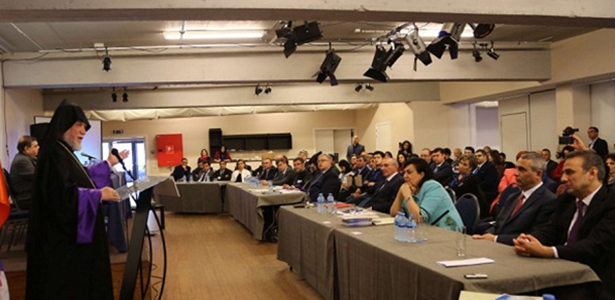 EXTREME ARMENIAN NATIONALIST DISCOURSE PERMITTED IN BELGIUM AND GERMANY
EXTREME ARMENIAN NATIONALIST DISCOURSE PERMITTED IN BELGIUM AND GERMANY
 CAN SREBRENICA GENOCIDE BE COMPARED TO THE EVENTS OF 1915 WITHIN THE SCOPE OF FREEDOM OF EXPRESSION?
CAN SREBRENICA GENOCIDE BE COMPARED TO THE EVENTS OF 1915 WITHIN THE SCOPE OF FREEDOM OF EXPRESSION?
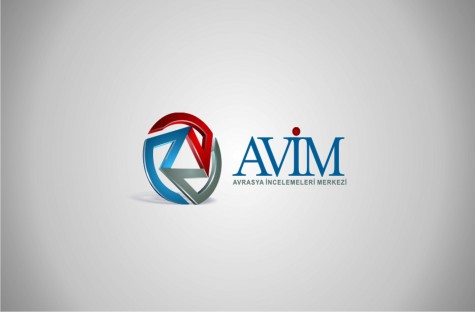 A TALE OF TWO STATEMENTS
A TALE OF TWO STATEMENTS
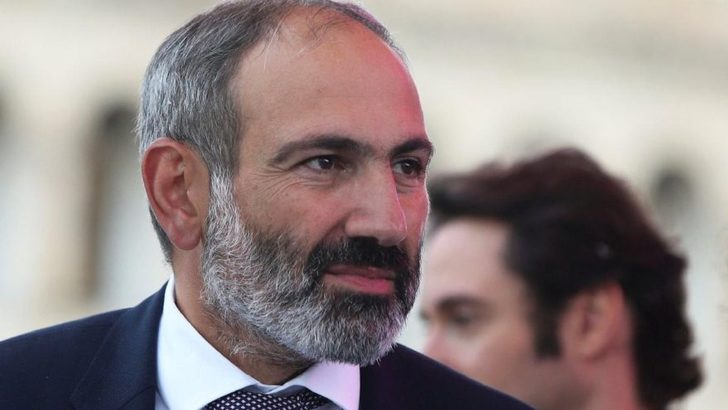 ARMENIAN ECONOMY NEEDS TO BE ABLE TO FISH NOT CHARITIES FROM DIASPORA
ARMENIAN ECONOMY NEEDS TO BE ABLE TO FISH NOT CHARITIES FROM DIASPORA
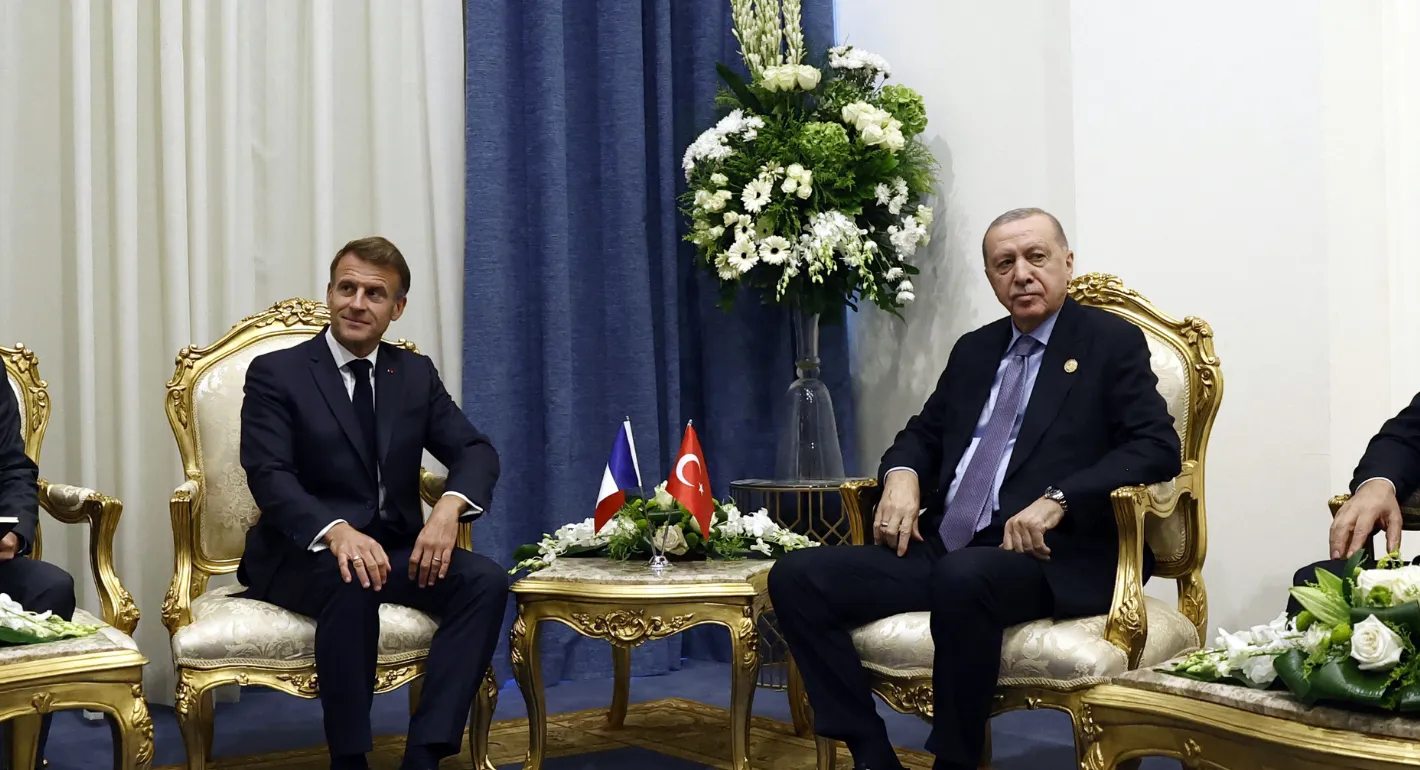 FRANCE, TÜRKİYE, AND THE BLACK SEA ORDER: LEGAL REALITIES VERSUS STRATEGIC SHORTCUTTING
FRANCE, TÜRKİYE, AND THE BLACK SEA ORDER: LEGAL REALITIES VERSUS STRATEGIC SHORTCUTTING
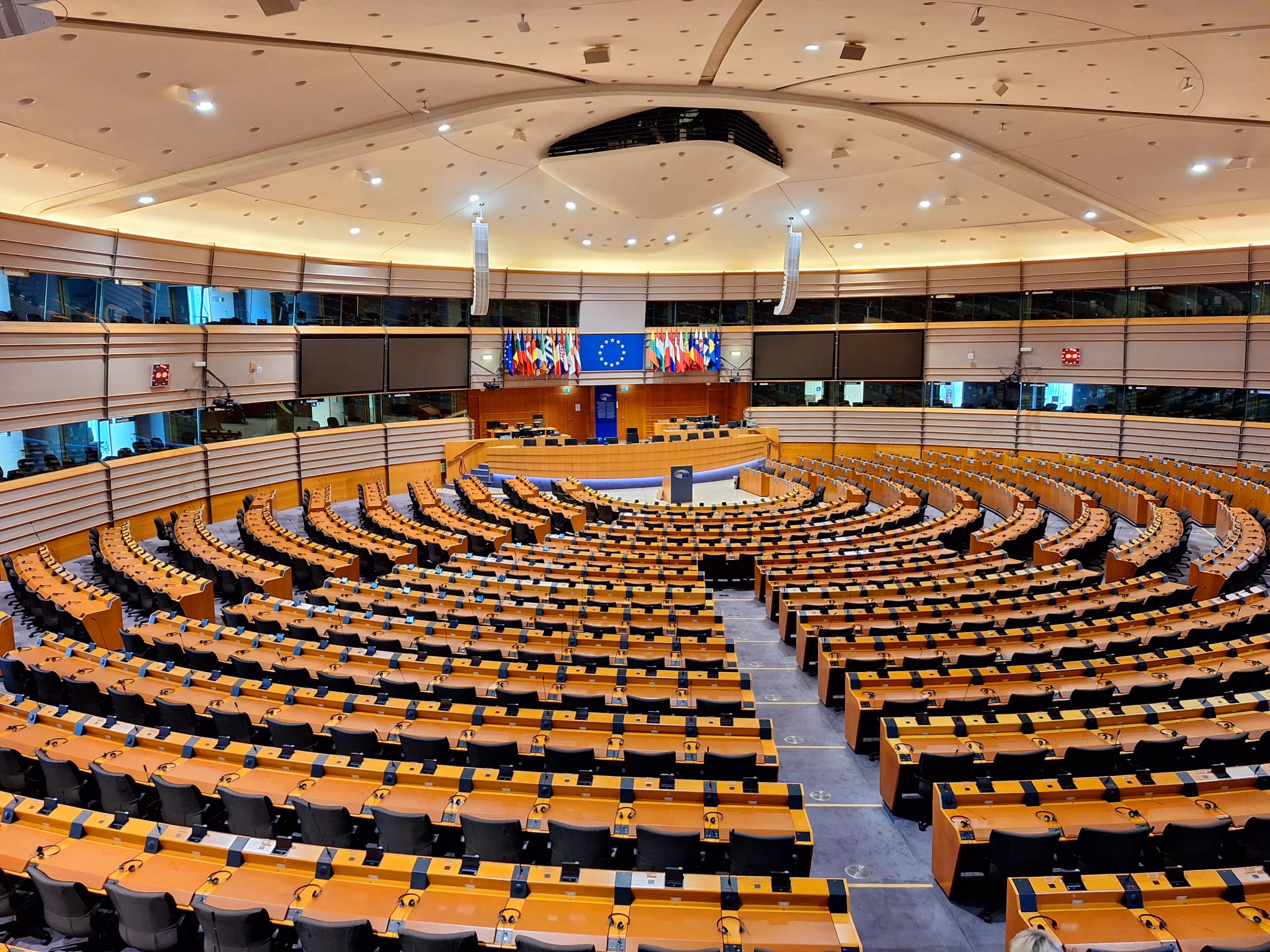 THE EUROPEAN PARLIAMENT’S DOUBLE STANDARDS IN ITS USE OF THE “GENOCIDE” CONCEPT: PERSPECTIVES ON THE 1915 EVENTS AND THE GAZA CRISIS
THE EUROPEAN PARLIAMENT’S DOUBLE STANDARDS IN ITS USE OF THE “GENOCIDE” CONCEPT: PERSPECTIVES ON THE 1915 EVENTS AND THE GAZA CRISIS
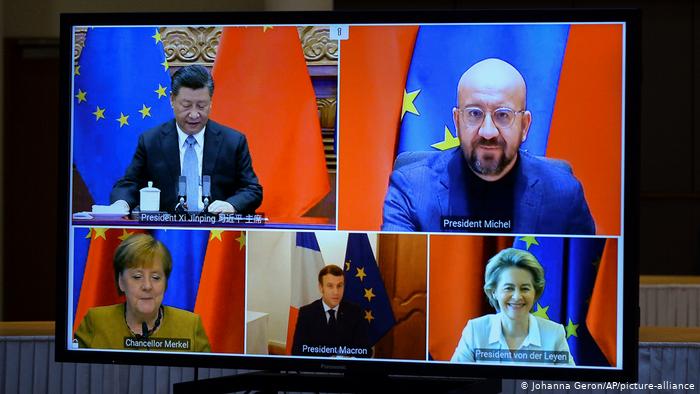 HOW TO UNDERSTAND THE EU-CHINA AGREEMENT ON INVESTMENT
HOW TO UNDERSTAND THE EU-CHINA AGREEMENT ON INVESTMENT




























